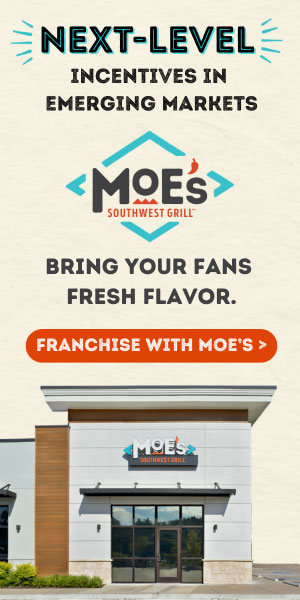The Interview: What You Should Ask the Franchisor

You've gone online and filled out the initial qualification form and cleared the first hurdle. Now it's time for that first phone call with the franchisor, where the communication goes from one-way emails to a two-way conversation with questions and, you hope, answers.
As in any job interview, both sides are trying to determine if, beyond the initial paperwork and finances, the potential exists for a long-term partnership profitable to both sides.
When you speak with a franchise sales representative or screener in the initial phone interview, what is their tone? Are they friendly? Helpful? Do they ask you about your goals, or barrage you with a slick sales pitch? Is the conversation more about what you want, or is it more about what they want from you?
Franchising is all about relationships: franchisor-franchisee, franchisee-customer, and even franchisee-franchisee. That's why it's so important to evaluate the quality of the potential long-term partnership: The most successful franchisee-franchisor relationships are two-way streets.
Part 1: What You Should Ask the Franchisor
- How much can I make? Understandably, this is the number-one question franchisees ask. Unfortunately, it's not answerable in a definitive way, for many reasons, including legal ones. The Franchise Disclosure Document (FDD) provides "financial performance representations" (FPRs) in a section called Item 19. The percentage of franchisors disclosing these FPRs has risen steadily in the past decade. In 2016, 66 percent of franchisors provided FPRs, although the level of data provided varies greatly from brand to brand. You will have to speak with franchisees to gather the numbers required to create your business plan or pro forma. And, as should be expected: 1) most businesses don't make money in their first year; and 2) results vary from unit to unit based on the owner, the territory, and the economy.
- What's in your Item 19? The more information the better. Beyond gross revenues, does it include any expenses? (Note: It is extremely difficult for a franchisor to predict net profit, since each franchisee is an independent operator and both reporting methods and the types of expenses taken will vary.)
- Can I achieve my goals with your concept? You're looking to buy a franchise to achieve both business and personal goals. Be prepared with a list of your most important goals to run by the sales rep. One big question to resolve in your own mind: Do you want to be a hands-on operator or hire a manager to run the business? Some franchisors require personal involvement for first-time, single-unit buyers.
- Do our values and culture align? Every franchise organization has a set of values it operates under. Companies also have a unique culture, and you have yours. Do they match up well? Will you struggle to act in accordance with the franchisor's values? Will you be working with like-minded people?
- Do you help with financing? Does the franchisor provide help obtaining financing? Can they recommend preferred lenders? Is the company on the SBA Registry? Where have their current franchisees found capital to start up and grow?
- Are you offering any financial incentives or deals? Many franchisors offer veterans, minorities, and women discounts on the franchise fee and/or reduced royalties to help the business get off the ground. Franchisors also will offer deals on specific geographic areas they're interested in expanding into. During the Great Recession, many franchisors offered limited-time deals that included no franchise fee or royalties for 6 to 24 months, discounts on additional units, and even money-back guarantees. (But read the small print!).
- How do you resolve disagreements or disputes? Does the franchisor call in their lawyers and pull out the Franchise Agreement, or say, "Let's sit down and work this out together?" Does the brand have a history of franchisee lawsuits? Misunderstandings and disagreements are bound to arise. How the franchisor handles them is a good indicator of how much (or how little) they value a good relationship with their franchisees.
- Is there a Franchise Advisory Committee (FAC)? This is a group of franchisees who represent the interests of the franchisees. Good franchisors welcome input from these groups and work with them to keep the franchisor-franchisee relationship working the best it can for both sides.
- What territories are open in my area? Where do you want to open? In your neighborhood? Across town? Generally, connections to the local community are a plus in building a successful business, from knowing your customers to hiring employees. Many franchisors also strongly encourage their franchisees to become involved in their community to build goodwill and brand awareness.
- Will you help me find the best site? For retail brands, a good location is paramount to success. In addition to their years of experience locating units, many franchisors also have powerful software tools or an outside vendor they use to determine the suitability of a site.
- Will you help me negotiate a lease? For retail franchises, rent is one of the single largest recurring expenses. Leases also can be complicated, with landlords often having an advantage over a new business owner. Getting the franchisor on your side in negotiating lease terms can put many more dollars in your pocket each month.
- How long before I can open? Does the lag time from signing the franchise agreement until you open your doors fit with your plans? Do your finances support the months it can take? What if you can't find a suitable site? Can you get your franchise fee back?
- Do you offer a "starter kit"? Some franchisors offer a scaled-down version of their brand, allowing new operators to keep their full-time job for a time; others offer a reduced model that allows new franchisees to try on the brand before committing to a full-blown version.
- Who will I deal with on an everyday basis? Support from a franchisor's field representative, especially in the early days, can be a life saver. Field support staff are like den mothers. They've seen it all before and can offer invaluable expertise to help franchisees at all levels and stages of development to succeed.
- Do you provide grand opening support? Your first day is a big deal, and you can use all the help you can get to make a big splash in your market. Support can include corporate personnel, advance advertising and marketing, a public relations campaign (radio, TV, print, online), on-site promotional materials, opening-day discounts and giveaways, and even some funding.
- Describe your training program. Since you are looking to buy a proven system, proper training in that system is essential to your success as a franchisee. This includes not only how to make subs, clean houses, or ship packages (operational training), but also training in how to hire and train employees, financial management, and even how to be a leader for your growing team.
- How do your royalties and marketing fees work? While most franchisors collect monthly royalties as a percentage (4% to 8%) of gross revenues, some have a flat fee structure, allowing their more enterprising franchisees to make more money. Many franchisors also have a collective marketing fund (an additional 1% to 3% of gross revenues) that is used to market the brand nationally and regionally.
- Is there an exit strategy? Even though you are just starting out, business experts advise beginning with the end in mind. Where do you want to be in 5, 10, or 20 years? Assuming your franchised business is a success, can you pass it on to your children? Sell it to another franchisee? Will the franchisor buy it back? Does the franchisor insist on a right of first refusal? Will they provide any help in selling the business at any stage?
- How long until I make money? See above. Assuming you've chosen a strong brand and a good territory and location, it all depends on you.
| Back: 7.3: First Contact With A Franchisor |
Index |
Next: 7.5: The Interview: What the Franchisor Should Ask You |
Share this Page
| ADVERTISE | SPONSORED CONTENT |
Franchise Guides »
- Recent Guides
The Latest Franchise Guides for Opportunity Seekers - The Franchise Guide
An In Depth Analysis of the Franchise Industry - Franchise Buyers Guide
The First Steps to Franchise Ownership - Multi-Unit Buyers Guide
Featured Choices: |
Popular Choices: |
Featured Opportunities
| ADVERTISE | SPONSORED CONTENT |




 The franchise opportunities listed above are not related to or endorsed by Franchising.com or Franchise Update Media Group. We are not engaged in, supporting, or endorsing any specific franchise, business opportunity, company or individual. No statement in this site is to be construed as a recommendation. We encourage prospective franchise buyers to perform extensive due diligence when considering a franchise opportunity.
The franchise opportunities listed above are not related to or endorsed by Franchising.com or Franchise Update Media Group. We are not engaged in, supporting, or endorsing any specific franchise, business opportunity, company or individual. No statement in this site is to be construed as a recommendation. We encourage prospective franchise buyers to perform extensive due diligence when considering a franchise opportunity.